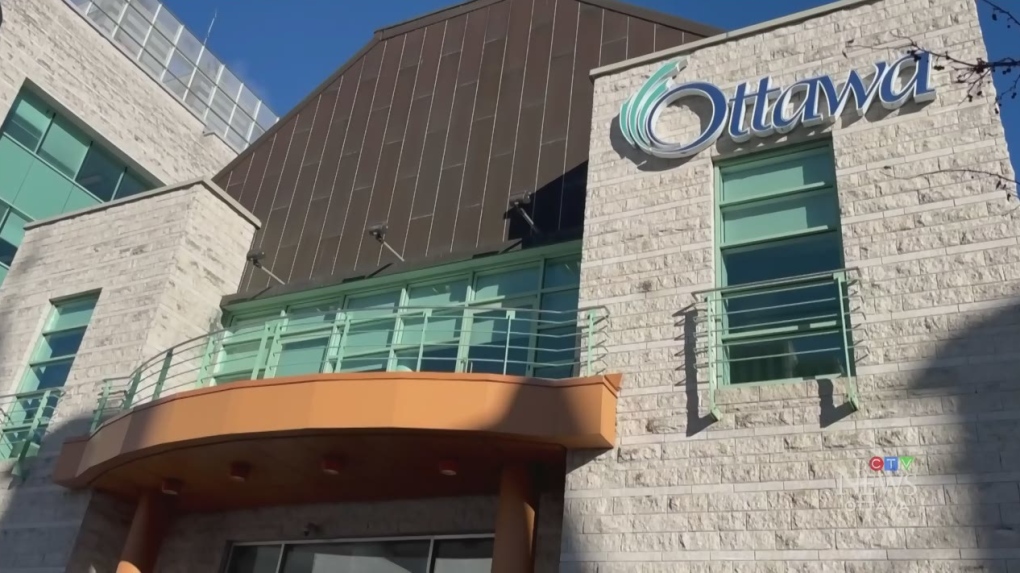Ottawa Board of Health presents 2025 budget

With the pressures of climate change, food insecurity and population growth putting a strain on Ottawa public health services, the Ottawa Board of Health trying to find a balance.
The city's Board of Health presented an almost $83 million spending plan for 2025 on Monday evening. The balanced budget was achieved with some one-time funding of almost $500,000 from the city and by taking 275,000 from reserve funds.
Catherine Kitts, chair of the board, says the funding from the province has not kept up with demand or population growth, with the capital seeing some of the lowest per capita funding for public health in the Ontario.
She hopes a funding review the provincial government has undertaken will fix the problem in time for the 2026 budget.
"We need to have additional revenue it should be coming from the province. We are talking about healthcare but if not, then there will be a hard conversation going into the 2026 budget" Kitts said.
"We can't rely on reserves year after year the needs are growing."
A report prepared for the board showed that Ottawa Public Health's (OPH) cost-shared budget shortfall was $8.4 million in 2021 and has since grown to $11.3 million.
OPH presented reports on food insecurity and climate change at Monday's meeting, the agency highlighting their impacts on physical and mental health.
It found, in part, that food insecurity is driven mainly by the high costs of housing and the inadequate levels of income support programs. Twenty-five percent of the Ottawa households are deemed to be food insecure, according to OPH.
Ottawa's medical officer of health Dr. Vera Etches noted the public health agency has faced some budgetary pressures coming out of the COVID-19 pandemic.
Ottawa Public Health has managed to maintain important public health programming, Etches said, but have been forced to look at creative solutions to keep programs like wastewater monitoring to track the prevalence of viruses in Ottawa. The Ontario Ministry of Health said earlier this year it would no longer fund the program, leading to concerns it could be cancelled.
A partnership with the Children's Hospital of Eastern Ontario (CHEO) and the University of Ottawa will keep that program running until 2026.
"We are trying to prioritize trying to focus on programs that will make the most difference, we have been doing that work so we are presenting a balances budget, but it is under pressure," Etches said.
"There are programs that people value that could be under threat if we continue to not have the provincial contribution that we are looking for."
OPH also noted the increased risk of climate change, with changing conditions causing damage through wind, floods and heat. Heat is now a major concern, with not having air conditioning meaning more trips to the emergency room or even death for those who can't escape sweltering temperatures.
The public will have a chance to weigh in on the budget proposal at a meeting on Dec. 2. The final draft will come before full city council for a vote on Dec. 11.
CTVNews.ca Top Stories

DEVELOPING UnitedHealthcare CEO shooting: Suspect appeared to be 'lying in wait'
UnitedHealthcare CEO Brian Thompson was killed Wednesday morning in what investigators suspect was a targeted shooting outside a Manhattan hotel where the health insurer was holding an investor conference.
BREAKING Multiple people stabbed in downtown Vancouver: police
A 'number of people' were stabbed in downtown Vancouver Wednesday before the suspect was shot by police, authorities say.
Warm, wet winter expected in much of Canada, say forecasters
Federal forecasters expect a warmer-than-normal start to winter in most of Canada, with more precipitation than usual in parts of the country.
Air Canada to bar carry-on bags for lowest-fare customers
Air Canada plans to bar carry-on bags and impose a seat selection fee for its lowest-fare customers in the new year.
French government toppled in historic no-confidence vote
French opposition lawmakers brought the government down on Wednesday, throwing the European Union's second-biggest economic power deeper into a political crisis that threatens its capacity to legislate and rein in a massive budget deficit.
Why are some Canada Post outlets still open during CUPW strike?
As many postal workers continue to strike across the country, some Canadians have been puzzled by the fact some Canada Post offices and retail outlets remain open.
opinion Tom Mulcair: The one place in Canada where Poilievre can't break through is Quebec
Former NDP leader Tom Mulcair says Pierre Poilievre has only himself to blame for his poor performance in the polls in Quebec.
$80-million jackpot: 2 winning tickets sold in Canada
There are two winners of the $80 million Lotto Max jackpot, Ontario Lottery and Gaming (OLG) has announced. The prize will be split between two tickets sold in Quebec and Alberta, respectively.
2 Quebec men top Bolo Program's latest Top 25 list of Canada's most wanted
Two men believed to be central figures in Quebec’s violent and ongoing drug conflict topped the Bolo Program's latest Top 25 list of Canada's Most Wanted fugitives.

































